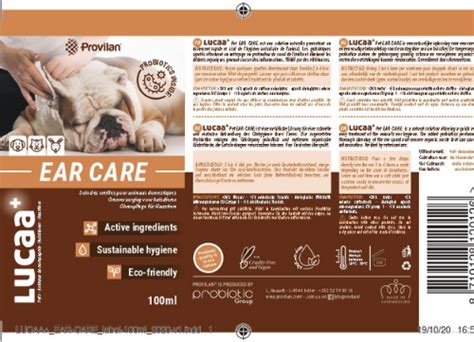The Importance of Ear Health for Pets
Ears are vital sensory organs for pets, allowing them to navigate their surroundings, communicate, and maintain balance. Maintaining healthy ears is crucial for their overall well-being and quality of life.

Common Causes of Ear Problems in Pets
Ear problems are prevalent among pets, with an estimated 20% of dogs and 10% of cats experiencing ear infections annually. Common causes include:
- Allergies
- Bacterial or yeast infections
- Foreign objects (e.g., grass seeds, dirt)
- Parasites (e.g., ear mites)
- Autoimmune disorders
- Cancers
Preventative Measures for Healthy Pet Ears
Regular ear cleaning and monitoring are essential for preventing ear problems. Here are some proactive steps to follow:
- Regular Cleaning: Clean your pet’s ears weekly or every two weeks using a pet-specific ear cleaner.
- Monitor for Discharge or Odor: Check your pet’s ears regularly for any discharge, odor, redness, or swelling. These could indicate an infection.
- Avoid Irritants: Protect your pet’s ears from harsh chemicals, loud noises, and extreme temperatures.
- Vaccinations: Vaccinate your pet against diseases that can cause ear infections, such as distemper and canine adenovirus.
Recognizing and Treating Ear Infections in Pets
If your pet exhibits symptoms of an ear infection, such as head shaking, pawing at the ears, rubbing on the ground, or discharge, consult a veterinarian immediately. Ear infections can be painful and, if left untreated, can lead to serious complications.
Signs and Symptoms of Ear Infections
- Head shaking
- Pawing at the ears
- Discharge (clear, yellow, or bloody)
- Redness or swelling of the ear canal
- Odor
- Rubbing on the ground or objects
- Pain or discomfort
Treatment Options for Ear Infections in Pets
Treatment for ear infections depends on the underlying cause and severity. Common treatments include:
- Ear Cleaning and Medication: The veterinarian will clean the ear canal and prescribe antibiotics or antifungal medication to address the infection.
- Surgery: In some cases, surgery may be necessary to remove foreign objects or treat chronic infections.
- Ear Drops: Over-the-counter ear drops can be used to relieve discomfort and prevent infections.
Common Mistakes to Avoid in Pet Ear Care
- Over-Cleaning: Cleaning your pet’s ears too frequently can irritate the ear canal and make it more susceptible to infection.
- Using Human Products: Human ear cleaners and medications are not suitable for pets.
- Ignoring Symptoms: Neglecting ear problems can lead to serious complications. If you notice any signs of an ear infection, seek veterinary attention immediately.
- Delaying Treatment: Early detection and treatment of ear infections are crucial for successful outcomes.
Conclusion
Ear health is essential for the well-being of pets. By following preventative measures, recognizing symptoms, and seeking treatment promptly, you can safeguard your furry companion’s hearing and overall health for years to come.





















